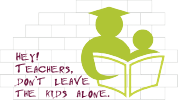The project was inspired by working with professionals of the education sector. The partners of this consortium discussed the most burning needs related to the social challenges as well as those of the learners and teachers opearting in the schools cooperating with the partner organisations. The conclusion was that professionals of education need practical tools for the management of students (and their families) in social/relationale difficulties.
This project refers to the adequacy of training approaches used by primary school’s teachers with relation to the main trends of social change in progress. These trends apply to:
- Family changes and the arrival of new type of families, more complex and with more members;
- Evolution of educational and existential styles;
- Diversification of cultural context;
- Extension of the gap between rich and poor people and the crisis of middle class;
- New learning approaches and educational disadvantage.
Each of these trends, deeply connected to each other, is part of a specific social context – about liquid modernity, outlined by Bauman – that have largely lost its traditional networks of cohesion and cooperation, intensifying individualistic deviations that damage the basis of democracy and peaceful coexistence (Todorov). In this context, the school is one of the main pillar against the process of social molecularization but, in order to act efficiently, must be able to engage with different interlocutors than those of the past and different from each other for many reasons: needs, expectations, values, training models.
As described by the EU Commission:
“Education and training policy should enable all citizens to benefit from quality education and to acquire and update over a lifetime the knowledge, skills, and competences needed for employment, inclusion, active citizenship and personal fulfilment.
Inequalities persist in European education systems. Pupils from poor socio-economic backgrounds perform worse at school than their peers in all EU countries. Children from immigrant backgrounds, the disabled, and Roma children are among the most vulnerable groups affected. At the same time, there are large differences between countries in the extent to which family background influences learning outcomes.
Against this background, Europe needs more efficient but at the same time more inclusive and equitable education systems, which give access to quality educational provision.”
The project is based on the idea to create specific training tools to enable teachers to engage directly, at least potentially, with each student (especially with those at risks of exclusion for social or economic reasons, or for cognitive or physical disabilities) and each family in an individual and group way, to reconnect this relationship into networks of exchange and social cohesion to take them away to their solitude and/or prevent the risk that they establish new types of solitude in their scholastic experience.
This dual ability to welcome/receive, through enhancing practices of individualization and the connection of individual differences, is the essential requirement of every inclusive school, able to reflect the evolution of the needs traditionally attributed to the deficit area.
The aim of the project is to empower both: teachers engaged in children education and students (together with their families) in practical skills that allows them to handle daily challenges more effectively and enhance their ability of inclusion and their level of social wellbeing in a sustainable way.
Moreover,in this framework, an added value is the creation of a “Protocol” containing the procedures, the learning apporaches, training tools and physical/logistic aspects of the inclusive learning environements, that will be used as a guide for the validation and certification of these specific skills and competencies.
An issue concerning the adequacy of training approaches used by primary school’s teachers with relation to the main trends of social change in progress, needs common Europe-wide answers and a common approach at European level. The sharing of experiences, points of view and best practices is the basic tool for a social and cultural development of the territories, and only a consolidated exchange of good models or tools to be applied transregionally over Europe will produce an overall improvement of the educaitonal system.
Moreover it would not be possible to approach this topic in just one country in order to draw conclusions and results that could be used at European level. The fight against new form of social disadvantages, the promotion of inclusion in through education and competitiveness of educational system are subjects of European interest (and the causes are not linked to a specific country) and a wider impact, could be ensured by the involvement of several European countries focused on finding joint solutions to the issue.

Recent Comments